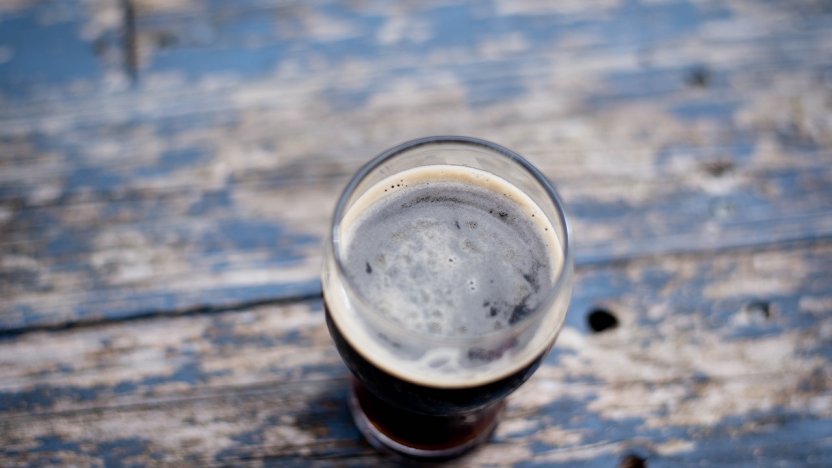Cambridge University, beer and the UK law of ‘passing off’

The UKIPO recently upheld an opposition by Cambridge University to a trademark application by Chadlington Brewery Limited, for the mark ‘Cambridge Blue’, claiming beers in Class 32. The decision offers a useful summary of the UK’s common law tort of ‘passing off’.
For many, there is an obvious link between beer and university. Perhaps with some amazing (or amazingly now ‘pale’) memories…
To begin, Cambridge University’s bases of opposition relied upon were, in quick outline:
- Earlier UK trademark registrations for ‘Cambridge’ and ‘University of Cambridge’ in Classes 16 and 41, including claims to reputation;
- Earlier UK trademark registration for ‘Cambridge North West’ covering retail of beer, entertainment/sports services, restaurant/bar services;
- Section 5(4) – passing off – of the mark ‘Cambridge’ (claimed to have been used throughout the UK since the 13th Century AD in relation to printed matter and education, conference, sport, boat racing, entertainment, scientific research, and academic research services).
Also added as a basis of opposition was an earlier UK trademark registration for a stylised ‘University of Cambridge’ mark covering alcoholic beverages except for beers in Class 33: 
So a fair number of bases of opposition – requiring a clear head…
A question of goodwill
While there were a number of factors at play, the decision by the UK Intellectual Property Office (UKIPO) provides a useful summary of how the common law tort of ‘passing off can operate. This is important because there are many other cases where this tort succeeded when statute failed the opponent. It shows how the UKIPO likes and uses evidence, and how detailed and granular UKIPO opposition decisions can be.
It is also a decision in which Cambridge University ended in a strong position enforcing its ‘non-beer’ Class 32 rights owing to ‘cider’ in Class 33 being claimed under the application.
In summary, the UKIPO found that Cambridge University had established goodwill in the name ‘Cambridge’ in relation to the university and its academic studies and research services. The evidence was also held to show that the applicant intended to attempt to use its mark to connect or link its ‘Cambridge Blue’ mark with the University of Cambridge (and its famous annual boat race).
It was held the average consumer, having purchased cider sold under the opponent’s stylised mark, and then encountering beer sold under the mark ‘Cambridge Blue’, would associate that term with Cambridge University and, therefore, be likely to assume that beer sold under the contested mark originates from the opponent.
It appears this was helped by the fact that, from the evidence, it was accepted the colour ‘Cambridge Blue’ is used by sports teams from Cambridge University and for a sporting award. In this connection, the dictionary definition of ‘blue’ includes the following: ‘A Cambridge blue or an Oxford blue is a man or woman who has played for Cambridge or Oxford University in a particular sport.’
Evidence was also accepted as “absolutely blatantly apparent” that the applicant had chosen and used both ‘Cambridge Blue’ and ‘Oxford Blue’ to create an association with Cambridge University and Oxford University. Further, the applicant conceded it had intended to use the contested mark “to support retail establishments and rowing clubs along the route of the 2020 Boat Race”, all of which points towards a deliberate association.
The Hearing Officer considered a significant part of the relevant public who recognises the opponent’s marks would also be aware of the use of the term ‘Cambridge Blue’ by Cambridge University and make the necessary link between the marks and the applicant’s ‘Cambridge Blue’ mark.
As to the specific part of the decision on Classes 32 and 33, it was held that a likelihood of confusion existed between the stylised mark (pictured above) and ‘Cambridge Blue’ due to the similarity of the marks and then the similarity of the ‘cider’ goods covered by the stylised mark and ‘beers’ under the ‘Cambridge Blue’ application. Consumers would assume the beer sold under ‘Cambridge Blue’ originates from the University of Cambridge.
The UKIPO Hearing Officer accepted the EU General Court’s position in Kavaklidere-Europe v OHMI - Yakult Honsha (Yakut) that the term alcoholic beverages (except beers) includes cider and that cider and beer are similar.
Practical implications
This case shows how a mix of registered rights, evidence, reputation and passing off, including evidence demonstrating the applicant was “sailing too close to the wind”, allowed the opponent to succeed. It is also a useful lesson in how including (or keeping) ‘cider’ in a Class 33 registration can provide for successful enforcement against a later mark in Class 32.
Most important, had Cambridge University not held that earlier registration for it its stylised mark in Class 33, this decision can likely be deemed a useful example of where passing off (and related evidence) would likely have won the day, had Cambridge University held no earlier registered rights in Class 33.
For some, the decision may not be too surprising. Although it is a long read, it is nevertheless a very useful case to digest and dissect; not only as to how common law and statute work side by side at the UKIPO, but also how focused and thorough the system works (particularly as formal hearings before the UKIPO are, while expensive to run, easily attainable).
Finally, the case highlights the benefit of undertaking clearance searches prior to using or applying to register a new mark in the UK. A trademark (including or commencing with) what some could give short shrift as a ‘non-distinctive geographic element’ may not always be free to use or register.
